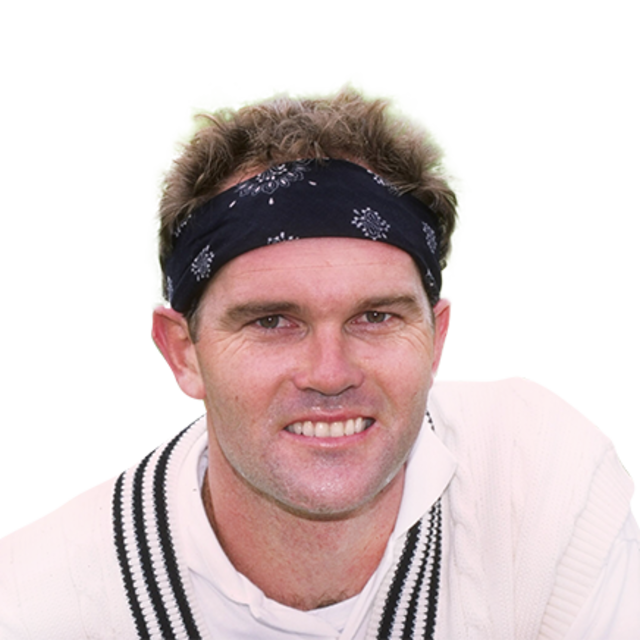Martin Crowe
INTL CAREER: 1982 - 1995
Full Name
Martin David Crowe
Born
September 22, 1962, Henderson, Auckland
Died
March 03, 2016, Auckland, (aged 53y 163d)
Batting Style
Right hand Bat
Bowling Style
Right arm Medium
Playing Role
Middle order Batter
Other
Coach, Commentator
As the 20th century drew to an end, Martin Crowe became the standard by which New Zealand batsmanship would be measured. A batsman of elegance, poise and range, Crowe broke through into Test cricket as a 19-year-old, and in a short span of time was heralded as the best young batsman in the world. By the end of his Test career, he was New Zealand's highest run-getter and century-maker, scorer or 10,000 international runs, its captain in the 1992 World Cup who engineered an exhilarating home run all the way to the semi-finals, and a totemic figure in his team's feisty Test performances through the Eighties.
The son of a cricketing family, whose father had played first-class cricket, Crowe came from suburban Auckland, destined for greatness. He arrived a complete batsman still in his teens, a technique burnished in both attack and defence, a fierce competitor alongside a devoted student of cricket with an innate game sense. In his prime, Crowe left the viewer with the impression of having a nanosecond more time to play his strokes, with balance in their execution and equanimity in his stance. He was a batsman of clean lines off the front foot, tall, elegant and classically sound, his signature strokes being down the ground, but capable of shots all around the wicket. His debut season in English county cricket as a 21-year-old replacement for Viv Richards at Somerset was a clear illustration that he belonged. At the crease, Peter Roebuck wrote of him, Crowe could "soar like an eagle."
Along with a clutch of senior players, with Richard Hadlee leading the bowling, Crowe was one of the central pillars of New Zealand's most successful team in history at the time. His 77 Tests and 143 ODIs for New Zealand remain memorable for his prolific batting through the 80s against the world's best bowling line-ups, both home and away, against high pace and quality spin. As captain of New Zealand at the 1992 World Cup, Crowe maximized New Zealand's resources in home conditions, turning the conventional rules of 50-over cricket on their head. He promoted big-hitting Mark Greatbatch up the order to open the batting, and started the bowling with offspinner Dipak Patel.
Injuries ranging from a broken shin, back trouble, torn hamstrings and in latter years, serious knee injuries, plagued him and would end his career. Through this, he produced performances of determination and dominance, part of 16 historic Test victories in which he averaged 55.5, ten runs above his career average. His highest Test score of 299 against Sri Lanka remained New Zealand's highest individual innings for more than two decades before Brendon McCullum's 302 versus India, in 2014.
After retirement, he worked in the media, heading Sky's television coverage of cricket in New Zealand for a period of time, invented a new format for the sport called Cricket Max, and worked with Royal Challengers Bangalore in the early years of the IPL. A thoughtful writer and commentator on the game, Crowe remained a mentor and a guide for a younger generation of New Zealand cricketers. Crowe was diagnosed with lymphoma in 2012 and although he was in remission for a time, he suffered a relapse in 2014, and died in 2016 at the age of 53.
Sharda Ugra
Terms of Use|Privacy Policy|Your US State Privacy Rights|Children's Online Privacy Policy|Interest - Based Ads|Do Not Sell or Share My Personal Information|Feedback
© 2024 ESPN Sports Media Ltd. All rights reserved
